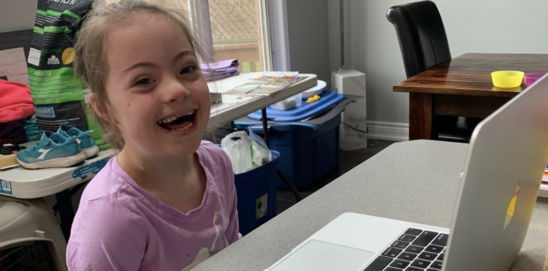
Continuing my theme of inequity arising from the switch from in-person to emergency remote learning, one group of children/students particularly affected are those with special needs. In the U.S. alone, 7.5 million students in special education are currently affected by school closures. It is really important that attention is paid to children with special needs and satisfactory support is provided to help them learn online and/or at home.
United Federation of Teachers (New York City)
I was therefore very pleased to come across this site of the United Federation of Teachers of New York City: Special Education Remote Resources
It pulls together a number of different sites offering support for online special education students, and guidelines for teachers and parents.
Educating All Learners
- Teaching and Learning Strategies for remote/hybrid teaching;
- Assessment and feedback;
- special interventions (e.g. speed and occupational therapy);
- family partnership and communication;
- process and policy;
- staff support and development;
- wellbeing;
- student engagement and agency;
- examples from the field
Academic Supports for Students with Disabilities
tackles the central question of how schools can intervene during and after remote/hybrid learning to reduce the learning gaps between students with disabilities and their peers. (PDF – go to the UFT site for link)
Centre for PBIS (Positive Behavioral Interventions and Supports)
tips for maintaining continuity of learning through defining classroom expectations for remote (i.e., distance) instruction and online learning environments
Universal Design for Learning in Higher Education
Executive functioning in remote environments for college students with special needs
Center on Reinventing Public Education (CRPE)
School District Responses to COVID-19 Closures This database tracks over 100 districts that range in size and geography, and serve nearly 10 million students in the USA.
Learning Disabilities Association of America
Tips for Educators Based on Parent Experience with Remote Learning
Discipline specific resources
Links for advice regarding:
- Autism;
- cognitive disabilities;
- learning disabilities;
- hearing loss;
- occupational therapists;
- physical therapists;
- school counsellors;
- school nurses and psychologists;
- speech therapists;
- visual impairments
plus a whole set of additional resources.
Elemy
Another useful set of online resources for those with autism is Elemy (formerly known as Sprout Therapy). Elemy is an innovative, tech-forward provider of in-home and online applied behavior analysis to help children on the autism spectrum meet their unique needs. It recently created a new guide providing job and career options to those with Autism Spectrum Disorder:
https://www.elemy.com/studio/autism-resources/jobs-and-careers
https://www.elemy.com/studio/autism-resources/living-alone-and-housing
https://www.elemy.com/studio/autism/adults
My comments
Although sometimes specific to the U.S.A, and although some of the advice would apply equally to all students, not just those with special needs, this is an excellent set of resources.
Once again, the response to Covid-19 requires extra attention to be paid to specific groups who will face specific challenges through the move to emergency remote and online learning. As with ALL teaching, one size does not fit all.
Teaching and learning needs to be arranged so that even – or especially – online, these various needs are all met as far as possible. This will probably mean in many cases doing something different online than what one would do in class in person for such children.
In other words, ALL children need to be treated individually, online or not. This is difficult to do with large class sizes, whether in-person or online. Appropriate training in online learning – and in teaching children with special needs – is essential, as well as appropriate class sizes. But, then, all experienced teachers know this. It is politicians and school administrators who need to pay attention.
In the meantime, well done, the United Federation of Teachers and the other organisations helping teachers and parents adapt online learning to the needs of students requiring special education.









 Dr. Tony Bates is the author of eleven books in the field of online learning and distance education. He has provided consulting services specializing in training in the planning and management of online learning and distance education, working with over 40 organizations in 25 countries. Tony is a Research Associate with Contact North | Contact Nord, Ontario’s Distance Education & Training Network.
Dr. Tony Bates is the author of eleven books in the field of online learning and distance education. He has provided consulting services specializing in training in the planning and management of online learning and distance education, working with over 40 organizations in 25 countries. Tony is a Research Associate with Contact North | Contact Nord, Ontario’s Distance Education & Training Network.

